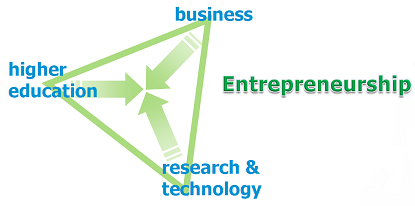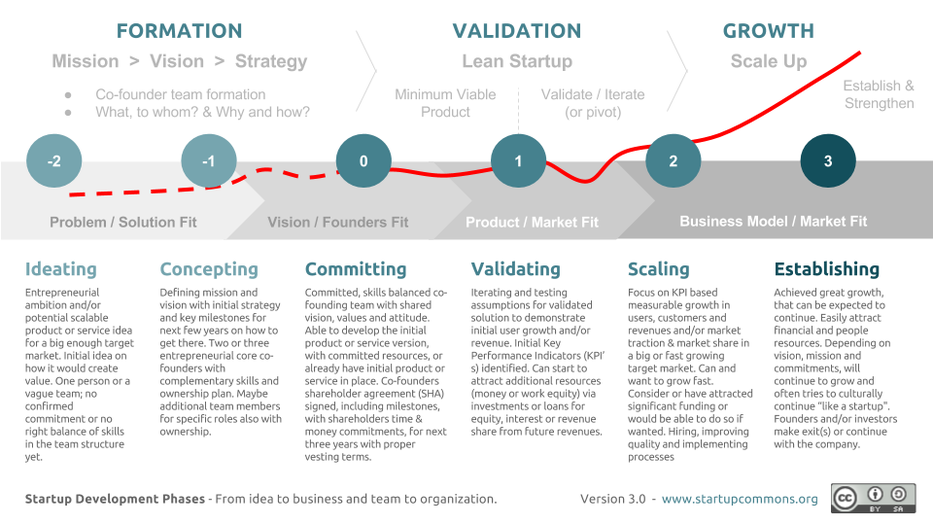|
Entrepreneurship education differs from other disciplines. When you train students to become entrepreneurs, you are teaching people to create their own jobs, serve unmet needs, and change the way society functions. Essentially, you are teaching them how to navigate uncharted waters. Traditional business schools, as well as other vocational programs, use clear metrics to define student success. These metrics include how many students get jobs and how much they earn. Benchmarking entrepreneurship education is a much more difficult task. How can universities and entrepreneurship education programs measure student outcomes in uncharted waters? The LEO-I Model According to “Entrepreneurship Education Comes of Age on Campus,” a 2013 Kauffman report, Arizona State University has developed an innovative model to measure entrepreneurship education outcomes. The LEO-I model consists of four dimensions: Landscape, Engagements, Output, Impact. Landscape: What courses, clubs, services, etc. does the university offer to train students in entrepreneurship? Engagements: How many students, faculty, and staff are participating in the university’s entrepreneurship offerings? How many are starting? How many are finishing? Output: How many ventures are students starting? How much funding have these ventures received? How many patents are being created? (Output covers quantifiable outcomes.) Impact: How are the university’s entrepreneurship education programs changing the world, as well as students’ lives? Are student ventures sustainable? (Impact is much harder to measure than output.) Problems with the LEO-I Model The LEO-I model provides a strong starting point for benchmarking entrepreneurship education, but it lacks in several areas.
Solutions to LEO-I Model Problems Here is the overview of solutions to the problems that occur within the LEO-I model:
Now, let us explore each solution in greater detail. Benchmarking Entrepreneurship Education at the Ecosystem Level Universities are clearly not the only institutions educating entrepreneurs. Formal training programs, such as accelerators and workshops, help entrepreneurs build key skills, grow their startups, and raise investment capital. Additionally, mentors, advisors, and collaborators provide informal training and support for entrepreneurs. In a sense, startup ecosystems are like giant universities, offering a wide selection of entrepreneurship services. However, it is much easier for universities to keep track of their entrepreneurship offerings than startup ecosystems since universities are more centralized than startup ecosystems. In order for data-driven economic development to occur within startup ecosystems, policy makers and ecosystem developers need mechanisms to apply the LEO-I model to their startup ecosystems. This is where Startup Commons can help. Our Ecosystem Mapping Application and Startup Ecosystem Portal enable ecosystem developers to understand the landscapes of their entire ecosystems. By applying our Ecosystem Development Framework, which is based on our Startup Development Phases, ecosystem developers can easily measure engagements and outcomes for their entire ecosystem, as well as specific entrepreneurship education programs. Applying KPI’s to Measure Impact
Using KPI's to measure impact is nothing new. Impact investment firms, such as Village Capital, already maintain impact metrics on their portfolio companies. Village Capital’s KPI's include amount of carbon emissions offset, number of low-income students served, acres of farmland sustainably managed, kilowatts of solar power installed, etc. Social entrepreneurship accelerators, such as Halcyon Incubator, also track impact metrics. Halcyon uses broad KPI's, including number of lives impacted globally and number of jobs created, because the companies that they serve span a wide range of sectors. Although impact investment firms and social entrepreneurship accelerators maintain impact KPI's, the companies that they serve are ultimately responsible for reporting the data. Essentially, the investment firms and accelerators ask for the data that they want, and the companies give it to them. This brings us to standardization of KPI's. Standardizing KPI’s In the cases of Village Capital and Halcyon, a central authority acts to standardize KPI's by asking companies for certain data. Using the Startup Commons KPI Data Dashboard, ecosystem developers can standardize KPI's throughout their ecosystem. This puts startups, support providers, and entrepreneurship education providers on the same page. The KPI Data Dashboard also makes it simple for policy makers to understand what is working in their economic development efforts. Additionally, ecosystem developers can use the KPI Data Dashboard’s API’s to share data with other parties. For example, ecosystem developers in multiple cities could share data between their startup ecosystems to compare economic development policies. They could also share the data with foreign investors to attract them to their regions. Of course, sharing data only makes sense if KPI’s are coordinated across startup ecosystems. This is why collaboration is key to global startup ecosystem development. Applying LEO-I Now, you hopefully understand how to overcome the problems with LEO-I and can successfully apply the model to your startup ecosystem development efforts. Whether you work for an investment firm or entrepreneurship education provider, you need to be sure to standardize your KPI’s across organizations. By placing an ecosystem development team in charge of your ecosystem data, you can create a centralized authority to standardize KPI’s and apply the LEO-I method to benchmark your ecosystem’s entrepreneurship education efforts. |
Supporting startup ecosystem development, from entrepreneurship education, to consulting to digital infrastructure for connecting, measuring and international benchmarking.
Subscribe for updates
Startup ecosystem development updates with news, tips and case studies from cities around the world. Join Us?Are you interested to join our global venture to help develop startup ecosystems around the world?
Learn more... Archives
December 2023
Categories
All
|
- Startup Commons
- Business Creators
-
Support Providers
- About Support Providers
- Learn About Startup Ecosystem
- Startup Development Phases
- Providing Support Functions
- Innovation Entrepreneurship Education
- Innovation Entrepreneurship Curriculum
- Growth Academy eLearning Platform
- Certified Trainers
- Become Growth Academy Provider In Your Ecosystem
- Growth Academy Training On-Site By Startup Commons
-
Ecosystem Development
- About Ecosystem Developers
- What Is Startup Ecosystem
- Ecosystem Development
- Ecosystem Development Academy eLearning Platform
- Subscribe to Support Membership
- Ecosystem Operators
- Development Funding
- For Development Financiers
- Startup Ecosystem Maturity
- Case Studies
- Submit Marketplace App Challenge
- Become Ecosystem Operator
- Digital Transformation
- Contact Us
- Startup Commons
- Business Creators
-
Support Providers
- About Support Providers
- Learn About Startup Ecosystem
- Startup Development Phases
- Providing Support Functions
- Innovation Entrepreneurship Education
- Innovation Entrepreneurship Curriculum
- Growth Academy eLearning Platform
- Certified Trainers
- Become Growth Academy Provider In Your Ecosystem
- Growth Academy Training On-Site By Startup Commons
-
Ecosystem Development
- About Ecosystem Developers
- What Is Startup Ecosystem
- Ecosystem Development
- Ecosystem Development Academy eLearning Platform
- Subscribe to Support Membership
- Ecosystem Operators
- Development Funding
- For Development Financiers
- Startup Ecosystem Maturity
- Case Studies
- Submit Marketplace App Challenge
- Become Ecosystem Operator
- Digital Transformation
- Contact Us





 RSS Feed
RSS Feed

